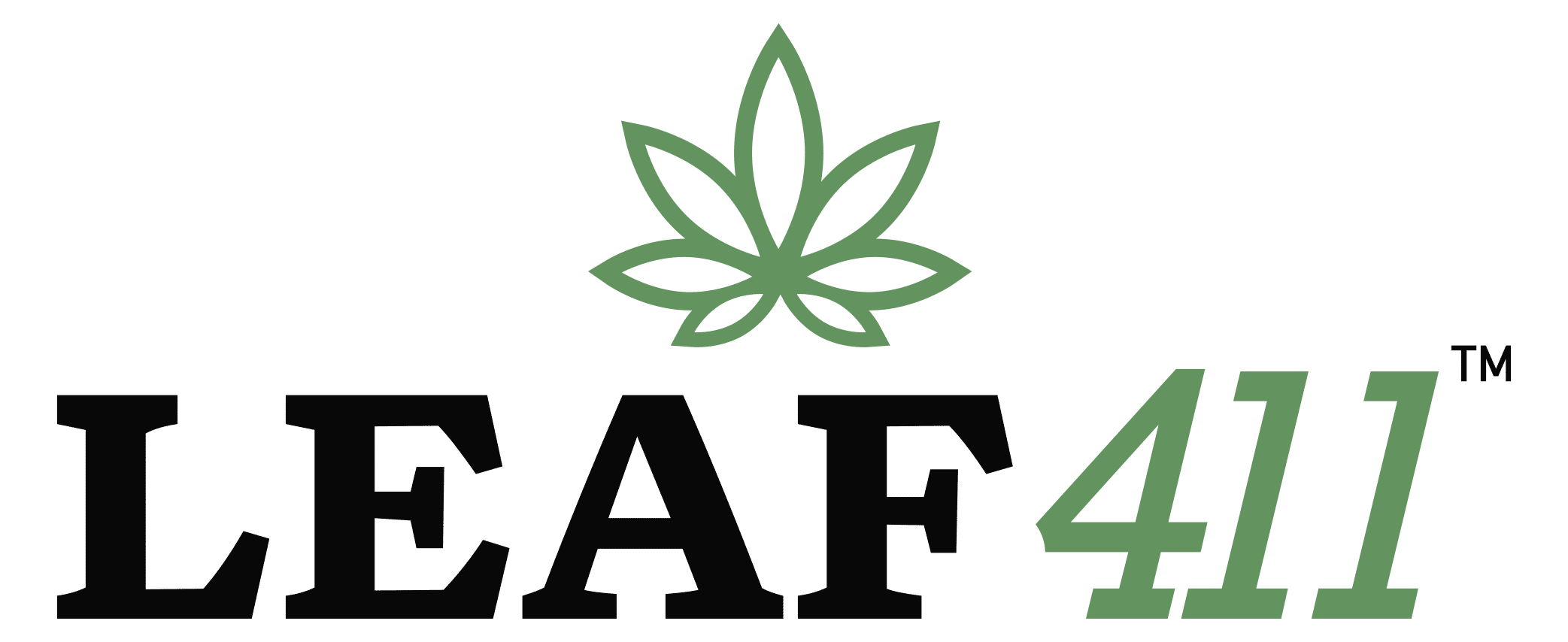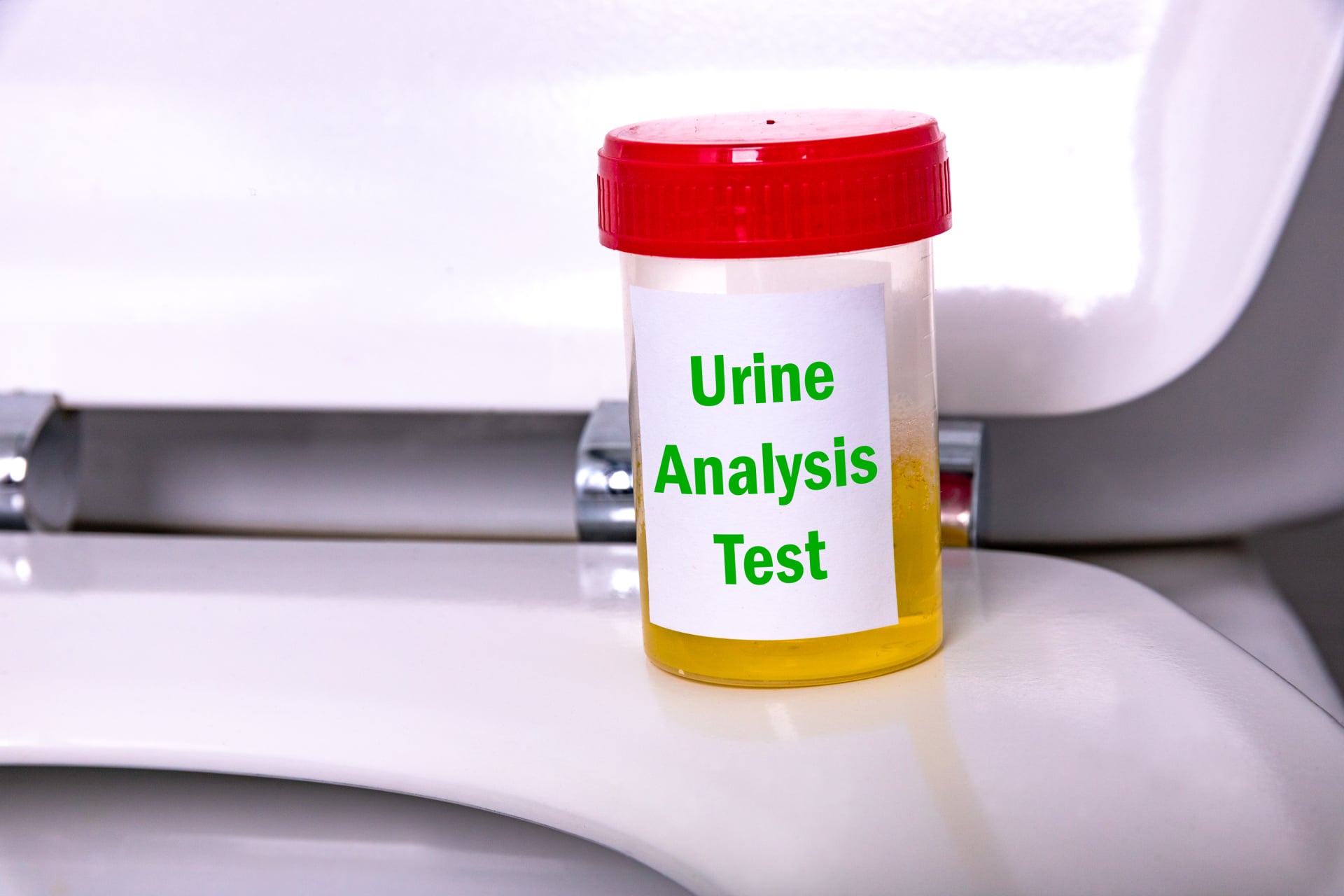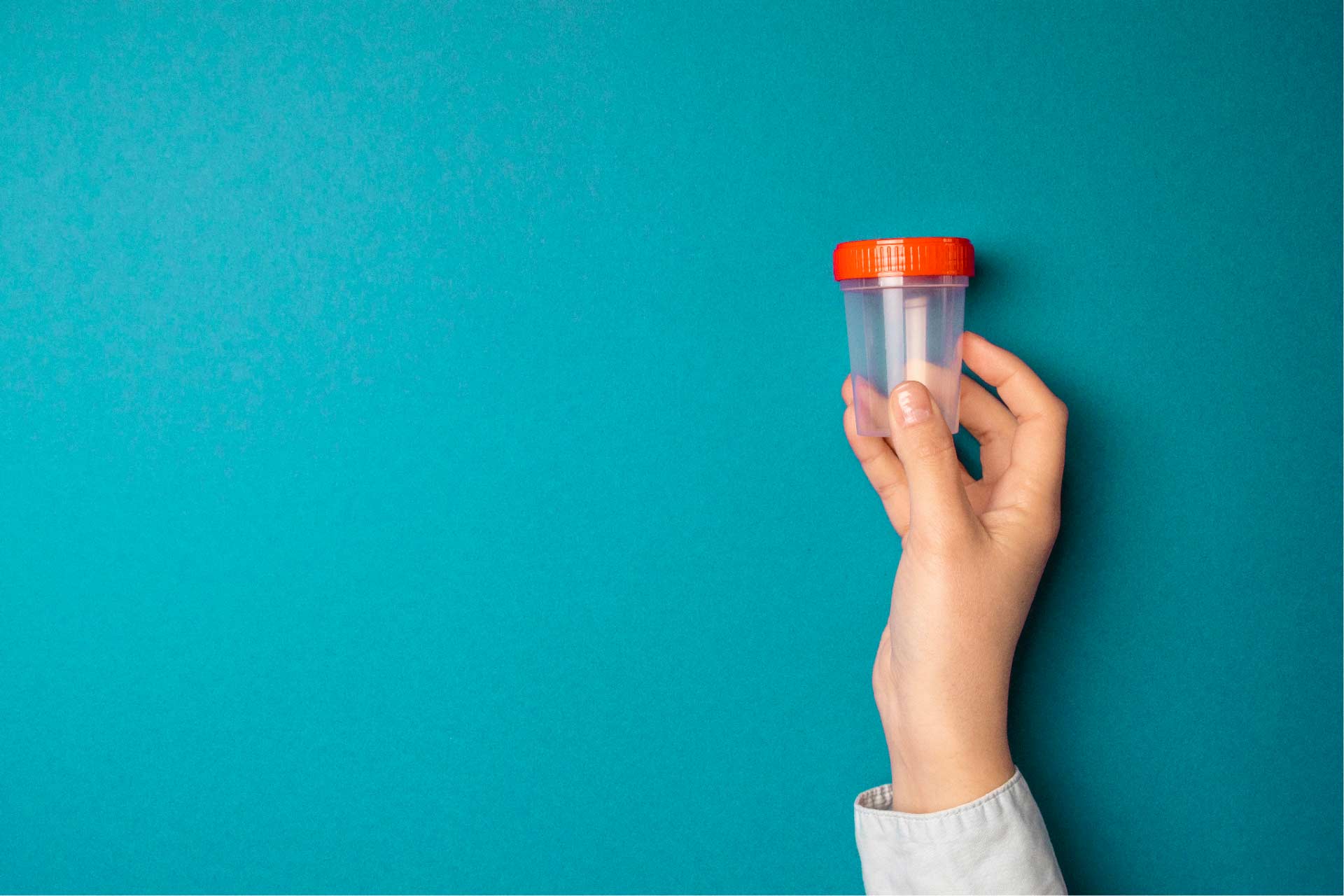CBD and Workplace Drug Testing
Can hemp CBD make you fail a drug test? It depends.
Medically reviewed by Katherine Golden, RN, and Eloise Theisen, NP
Written by Denise Rustning
Our Leaf nurses recently heard from several upset callers who unknowingly tested positive for THC on workplace drug tests, despite limiting their use to hemp CBD products. How did this happen? What can you do to reduce your risk of failing a drug test as a result of legal CBD use?
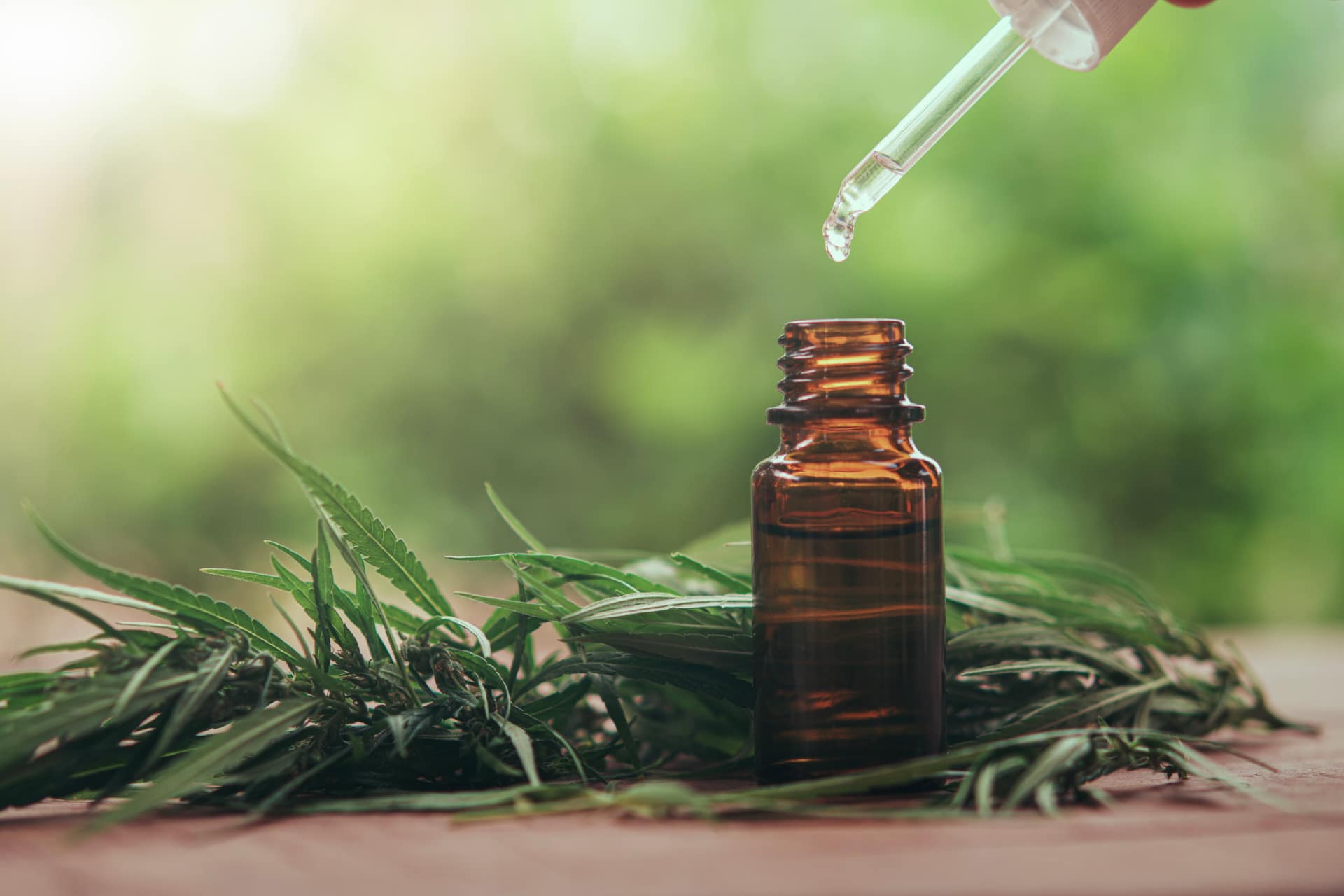
Natural hemp contains trace amounts of THC
Hemp is actually a form of cannabis that has been cultivated for specific characteristics, including high levels of cannabidiol (CBD) as well as very low levels of Delta-9 tetrahydrocannabinol (THC). Federal law requires legal hemp plants to test at under 0.3% THC on a dry weight basis. This hemp plant matter is then used to make the CBD tinctures, gummies, creams and other products that many of us rely upon for wellness and relief.
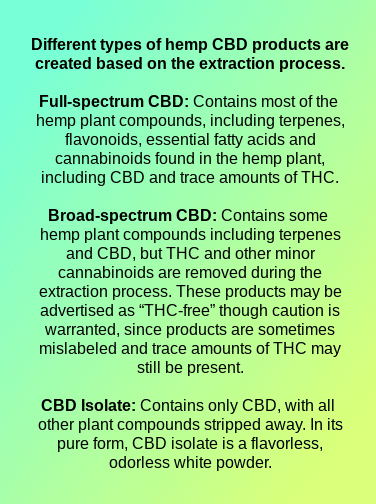
How much THC are you really getting in your hemp CBD?
The product you are taking may meet the legal limit for a hemp CBD product because it registers at 0.3% dry weight of THC. But after processing and packaging, the amount of THC per milliliter may exceed that amount.
Our Leaf nurses have seen many products on the hemp CBD market that are over 1-2 milligrams of THC per milliliter (1 milliliter is typically one dropper full).
Unfortunately many consumers may start off consuming 1-2 droppers full of full-spectrum hemp instead of a lower dose due to limited education when they purchased the product. As a result, they may unknowingly test positive on a drug screen because they are actually consuming 1-2 milligrams of THC on a regular basis.
Wouldn’t a consumer feel it if they were ingesting a couple of milligrams of THC? Sometimes yes and that’s why we have callers complaining that a CBD hemp product made them “high.” Not everyone will feel this type of effect, though, due to the low dose and fact that CBD impacts how THC is absorbed when both are taken together.
How to read a hemp CBD Certificate of Analysis (COA)
You may be wondering about the hemp products in your own cabinet, wondering where you can find information on the amount of THC in your full-spectrum CBD. The best place to look is the product’s Certificate of Analysis (COA) showing lab results from third-party testing.
- The amount of THC (milligrams per gram or “mg/g”) number is typically the last row on the right hand side (see example below).
- This number, mg/g, is approximately the same as milligrams per milliliter–in other words, the amount of THC that you will get per each milliliter (mL) dropperful. (Visit this article to learn more about volume conversion between different cannabis products.)
- Looking at the example COA below, you would expect to get about 0.4 mg of THC in each dropperful of the hemp tincture that was tested.

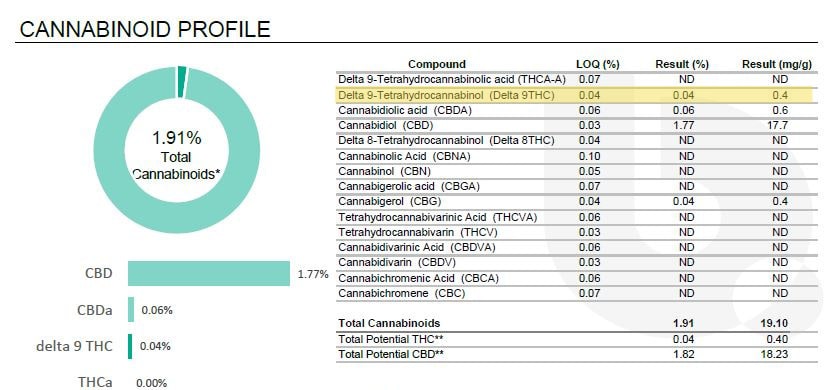
Screenshot from a third-party testing lab Certificate of Analysis (COA) for Elixinol’s Everyday Daily Balance Full-Spectrum CBD Tincture, showing CBD content as well as trace amounts of Delta-9 THC and other minor cannabinoids.
Understanding how much THC is really in your hemp is one part of the puzzle when it comes to potential drug testing. Another clue can be found in how those small amounts of THC are stored in your body, building up over time, when assessing whether your hemp use puts you at risk of failing a workplace drug test.
Leaf411 understands how complicated understanding medical formulations can be and that’s where our hotline nurses can help! If you have your COA in hand, our nurses will do the math for you and figure out the amount of THC you are taking with each dose. Call 844-LEAF411 (844-532-3411) or chat us from our home page during hotline hours, Monday-Friday from 8:00 a.m. to 7:00 p.m. MDT for help in understanding COAs and hemp CBD dosing, at no cost to you.
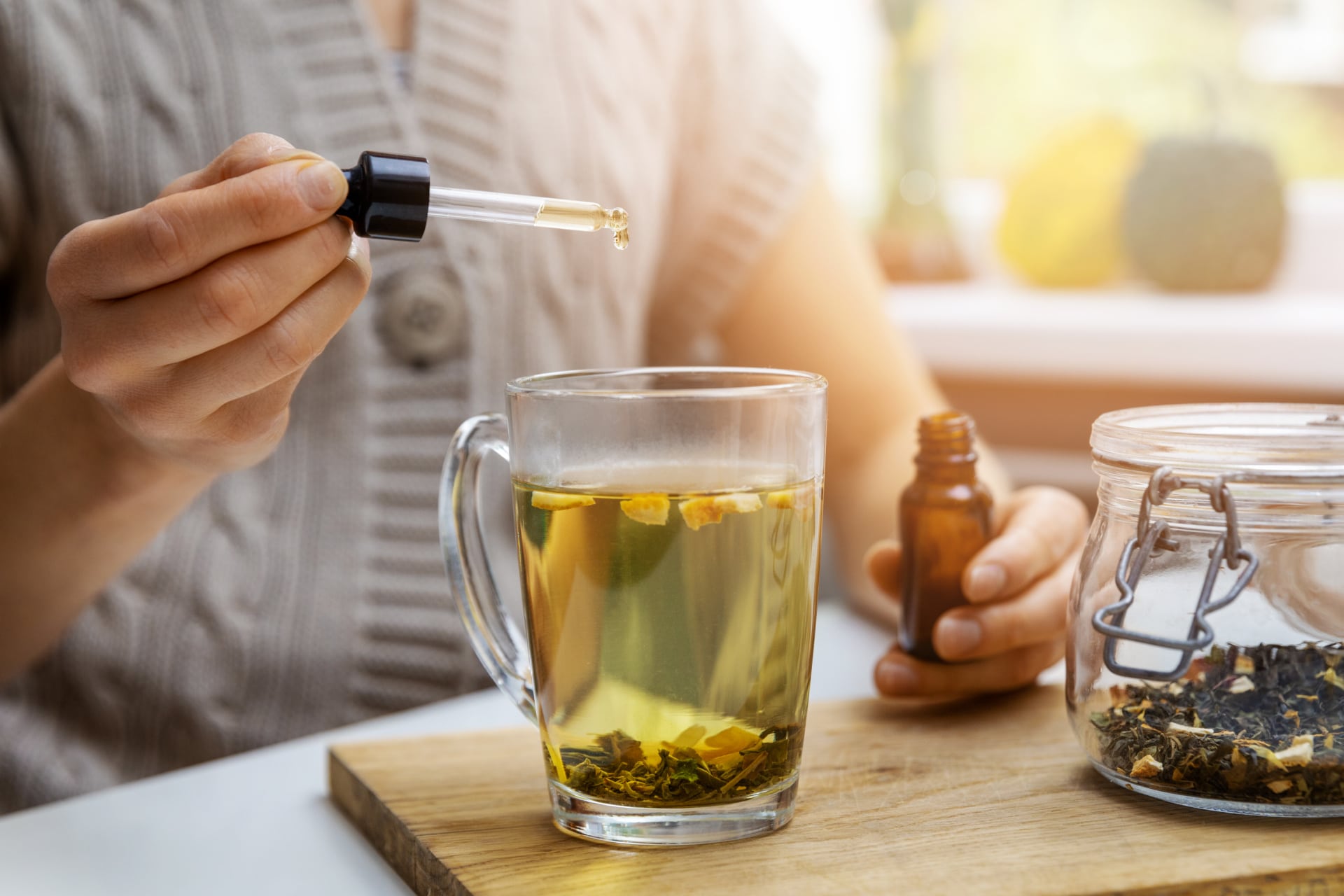
Understanding how THC is stored in the body
Many people prefer full-spectrum hemp CBD, finding it provides better quality symptom management for them than broad-spectrum or CBD isolate products.
With full-spectrum CBD, different plant compounds including minor cannabinoids and small amounts of Delta-9 THC are believed to work together to create an entourage effect. In other words, all the plant compounds working together have a stronger effect than any one compound would have by itself.
THC levels in full-spectrum hemp CBD products are low. However, they can pose potential risks when it comes to workplace drug testing.
Why is that?
When you ingest full-spectrum hemp either orally or through inhalation (smoking or vaping), the trace amounts of Delta-9 THC breaks down into non-active metabolites (THC-COOH) that stay in your system for days or even weeks. While these non-active metabolites don’t make you “high,” they are the markers of cannabis use that urine drug tests look for as evidence of previous cannabis use.
These THC-COOH metabolites accumulate or build up in your system over time, stored in fat cells until they are more slowly excreted, showing up in urine and saliva.
As we just mentioned, this buildup of THC-COOH does not cause intoxication or any other side effects, and is not a problem for most people–unless they are subject to drug testing.
In fact, the American Cannabis Nurses Association (ACNA) has come out against urine-based workplace drug testing due to the fact these tests are unreliable and do not accurately measure on-the-job impairment, with positive test results negatively impacting nurses and other workers who use hemp CBD and cannabis responsibly and legally while off the clock. Click on this link to download the full ACNA resolution regarding workplace drug testing of nurses for cannabis.
Do small amounts of THC from full-spectrum hemp build up to a detectable level?
Unfortunately, research is sparse on how small amounts of THC-COOH metabolites accumulate in full-spectrum hemp CBD users.
In regular cannabis users consuming higher-THC products, we know that these THC-COOH metabolites can stick around for up to a month following discontinuation of daily marijuana use, based on research.
We can also assume that even though the amount of THC in full-spectrum hemp is very small, it will accumulate in daily hemp users the same way that larger amounts accumulate in marijuana users, stored in fat cells with levels of THC-COOH increasing over time.
This is one plausible explanation for recent calls our hotline has received from daily hemp users who failed workplace drug tests based on the levels of the THC-COOH metabolite in their urine, even though they were using an average daily dose of full-spectrum CBD. We’ll discuss what amounts of THC-COOH the drug tests look for further down in this blog post.
Also, it is important to note that workplace drug tests look for evidence of Delta-9 THC, not other cannabinoids like CBD, CBN, or even hemp-derived Delta-8 THC which is created through a chemical process. (Learn more about Delta-8 here https://leaf411.org/answering-your-delta-8-questions/.)


Hemp CBD product quality matters
When investigating why hemp users may fail workplace drug tests, another potential issue comes up as well—product quality.
The hemp CBD product market is largely unregulated for now, putting the onus on the consumer to research product quality and trustworthiness.
The most powerful tool available to a consumer is the product Certificate of Analysis (COA) from a third-party laboratory (i.e. the product is not tested by the company itself); however, lab testing and COAs are completely voluntary for hemp manufacturers, and hemp lab testing technology lacks precision when it comes to very small amounts of cannabinoids when compared to drug testing technology. (To learn more about COAs, what they show and how to read them, we suggest checking out the article and video at this link.)
You can usually find product COAs on the manufacturer’s website, checking them out before you purchase a product.
We took a quick look at some of our Leaf411 hemp CBD members’ sites, and found that links to the COAs may be found either on the top menu or on the bottom of the main website, as well as on product pages themselves. You can also directly contact a manufacturer to request the COA for a particular product. If they don’t offer COAs, it might be best to keep looking for a different brand that does.
Product COAs provide a good start. If you’re buying from an established high-quality brand, you can be more confident that the COA can be trusted. Unfortunately some shady brands have been known to make fake COAs for their products.
Keep in mind, though, that a lack of standards across different third-party labs as well as the natural variability in plant-based products can result in cannabinoid levels that fluctuate between product lots or even individual product items, meaning that even honest companies face challenges in accurately reflecting the amount of THC in their products.
The U.S. Food and Drug Administration (FDA) recently tested 147 hemp CBD products on the market, with some surprising findings:
- Over half (108) of the products did not contain the amount of CBD listed on the label. Of those, 18% contained significantly less CBD than advertised, and 37% contained significantly more CBD than advertised.
- Nearly half the products contained THC levels above the limit of quantitation (LOQ), which is 3.1 mg per serving.
(Read the FDA summary in pdf format here.)
In other words, even reputable companies face challenges in accurately reporting precise test results, and less savory CBD companies often take advantage of the lack of standardized testing to sell products that don’t come near their product label claims.
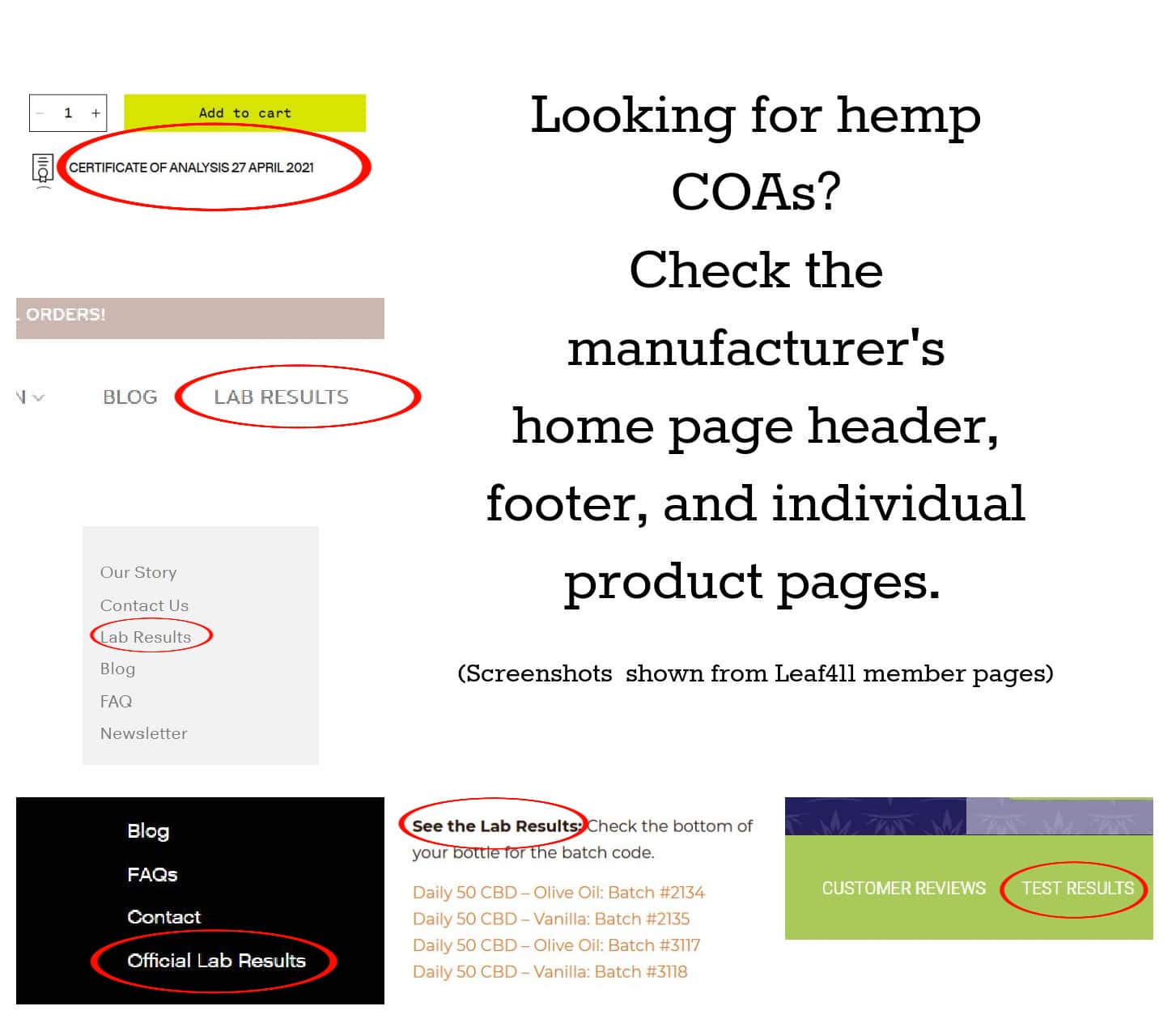

What are your workplace drug testing policies?
We’ve talked a lot about the CBD and THC cannabinoids in full-spectrum hemp, and how THC-COOH metabolites are stored in the body. Now, let’s turn to the urinalysis drug testing process, a topic we’ve written about before, but geared more toward marijuana users.
Most workplace drug tests, as well as the federal Department of Transportation (DOT), use a 50ng/ml limit for presence of THC-COOH metabolites. Hit that number or any higher, and you will fail the test.
In fact, drug testing laboratories are even able to test urine for lower levels of THC-COOH metabolites, at either a “sensitive” level of 20ng/ml, or an “extra-sensitive” level of 15ng/ml.
Is it possible for regular, responsible full-spectrum hemp use to put someone over the 50ng/ml limit? Based on recent calls to our hotline, we believe so.
Leaf411’s guidance for hemp CBD users who are subject to drug testing
- Be proactive. Take a look at your daily hemp CBD regimen, including all tinctures, gummies, beverages and other products you use to get an approximate idea of how much THC you might be ingesting or inhaling on a daily basis. As we mentioned before, though THC amounts are small, they can build up over time.
- When looking at the hemp CBD products you use (including those that claim to be THC-free), check if the manufacturers provide their COA lab results online on their website. COAs provide an extra level of assurance that the company is committed to transparency and high quality standards, though it’s not an absolute guarantee due to variations in lab testing techniques.
- Find out your workplace’s drug testing policies, as well as what sensitivity they test at. If you have a pending test scheduled at a lab, you can contact the lab directly to confirm what level they will be using. As we mentioned before, 50 ng/mL is the most common level employers use.
- Consider doing your own home drug testing with plenty of time before you face any potential workplace drug tests. We suggest utest which offers marijuana drug tests at different sensitivity levels, including 15 ng/mL, 20 ng/mL, and the standard 50 ng/mL, so that you can prepare based on what you know about your workplace’s testing policies.
- If you find that your current hemp CBD use triggers a positive THC drug test result, you may want to consider either taking a break from hemp CBD altogether, or switching to broad-spectrum or isolate products which should be THC-free. Of course, you’d want to repeat your home test in a few weeks to ensure your levels of the THC-COOH metabolite have gone down.
- For nurses and other healthcare workers: Consider sharing the ACNA position statement on workplace drug testing with your organization (click this link to download). Alternatives exist to more accurately test on-the-job impairment.
Keep in mind that our Leaf411 hotline nurses can help guide you in this process, at no cost to you. Call 844-LEAF411 (844-532-3411) or chat us from our home page during hotline hours, Monday-Friday from 8:00 a.m. to 7:00 p.m. MDT.
The Leaf411 cannabis nurse hotline provides free, anonymous education and directional support to the general public about the safe use of legal cannabis. We partner with select business members who meet our rigorous standards to extend our education and outreach efforts.

Cannabis, CBD Hemp and Workplace Drug Testing
Medically reviewed by Katherine Golden, RN
Written by Denise Rustning
Thirty-three states have legalized medical marijuana, with 11 of those states also legalizing adult-use (recreational) marijuana as of October 2020. Come November, those numbers are likely to grow as five additional states vote on either medical or adult-use cannabis initiatives.
But just because marijuana is legal in your state doesn’t mean that you’re protected, should you fail a workplace drug test.
Also, the proliferation of CBD hemp products has raised questions about whether the minimal, non-intoxicating amounts of THC contained in full-spectrum CBD hemp might trigger a positive drug test result.
We hear these concerns frequently enough on the hotline that we decided to take a closer look at current workplace drug testing protocols to help you choose the best course of action for your own use of CBD hemp or legal marijuana containing higher amounts of THC.

Why Does Cannabis Stay in Your System Longer than Other Drugs?
Many people use cannabis to help manage health conditions, boost wellness or simply to unwind after a stressful day. Cannabis’s intoxicating effects generally fade away after 2-8 hours, depending on your mode of ingestion. This means that the bowl you smoked on a Friday evening will be a distant memory by the time you return to work on Monday.
However, when the cannabinoid tetrahydrocannabinol (THC) is broken down, it creates non-active metabolites (THC-COOH) that stay in your system much longer. While these non-active metabolites don’t give you any kind of psychoactive effect, they are the “evidence” of cannabis use that urine drug tests look for. Depending on how frequently you use cannabis, these metabolites can be detected for several weeks or even months.
Other drugs like cocaine, amphetamines and opiates flush out of the body much faster, within a matter of 1-4 days. Alcohol also quickly exits the system, often within hours.
Why is cannabis different? Cannabinoids like THC are fat-soluble, with their non-active metabolites accumulating in fat cells. These metabolites are slowly flushed out via urine over a longer timeframe when compared to water-soluble substances that pass through without making a stop in fat cells.
When thinking about workplace drug testing, it doesn’t seem fair that someone could either lose a job or an offer due to a positive cannabis drug test, especially in a state where their cannabis use is fully legal and very likely happened off the clock. But until employers change their policies or the laws change, drug testing will be a reality for many workers, including those in the healthcare industry.
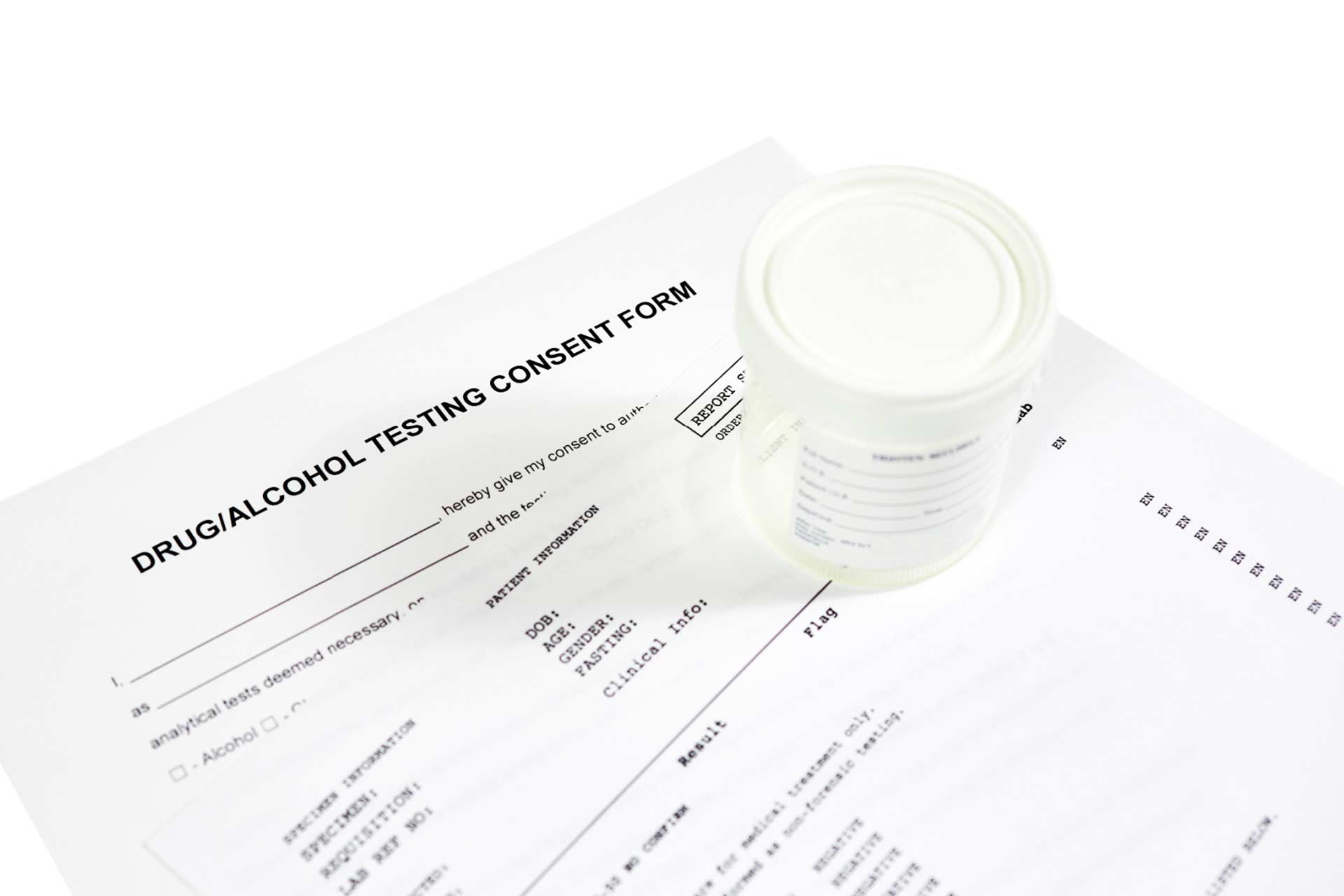
Drug Testing and Cannabis: What Do the Tests Look For?
Most workplace drug tests continue to include marijuana in their drug testing panel, even in legal states. Workplace drug tests, including Department of Transportation (DOT) tests, are typically set to trigger a positive marijuana result at 50 ng/ml.
If you’re required to complete a pre-employment drug screening or workplace testing, you can call the lab in advance to ask how many nanograms they’re testing for. This information will help you anticipate what your results might be, based on your past use of cannabis.
- For occasional users, metabolite levels in urine may remain above 50 ng/ml for 1-5 days
- For regular once-a-day users, levels may be detected for 1-3 weeks after discontinuing cannabis
- For moderate multiple-times-a-day users, levels may be detected 4-6 weeks following discontinuance
Factors that Impact Levels of Cannabis Metabolites in Urine
Your best friend tells you that they only had to stop using cannabis for one week to pass their drug screen. Your use is similar to theirs—so can you assume the same rule applies to you?
Not necessarily!
First of all, product potency plays into how long cannabis metabolites stay in your system. Your friend might be using a very low-dose tincture, while you depend on a product with ten times the amount of THC. Ingesting more THC means that you’ll end up with more metabolites which take longer to flush out of your system.
Also, body fat levels may impact how long THC-COOH remains present since it’s stored in fat cells. Put bluntly, the more body fat you have, the longer the metabolites might stick around.

Will CBD Hemp Cause a Positive Drug Test Result?
CBD hemp was legalized as part of the 2018 Farm Bill, and full-spectrum hemp (which contains all of the plant cannabinoids) may contain up to 0.3% THC under federal law. That amount of THC is so small that you won’t feel any intoxicating effects from it—but will it show up on a workplace drug test?
That’s an incredibly important question for many people. When your job is on the line, you can’t afford to take chances.
We suggest that anyone who is subject to regular or random drug tests should limit their purchases to CBD isolate products which have all THC removed. (Check out our article on CBD for more information on different types of CBD hemp.)
Be sure to confirm the products are THC-free by reviewing third-party test results, which are called Certificates of Analysis (COAs). All reputable manufacturers will have COAs available for their products. COAs should be on the product website or available by request. Details on the COA will vary, but they should always include results for CBD and THC levels.
We know that COAs can be confusing! Our Leaf nurses are experienced at reading COAs and can help with any questions you may have. Call us at 844-LEAF411 (844-532-3411) or chat us from the Leaf411.org homepage during hotline hours.
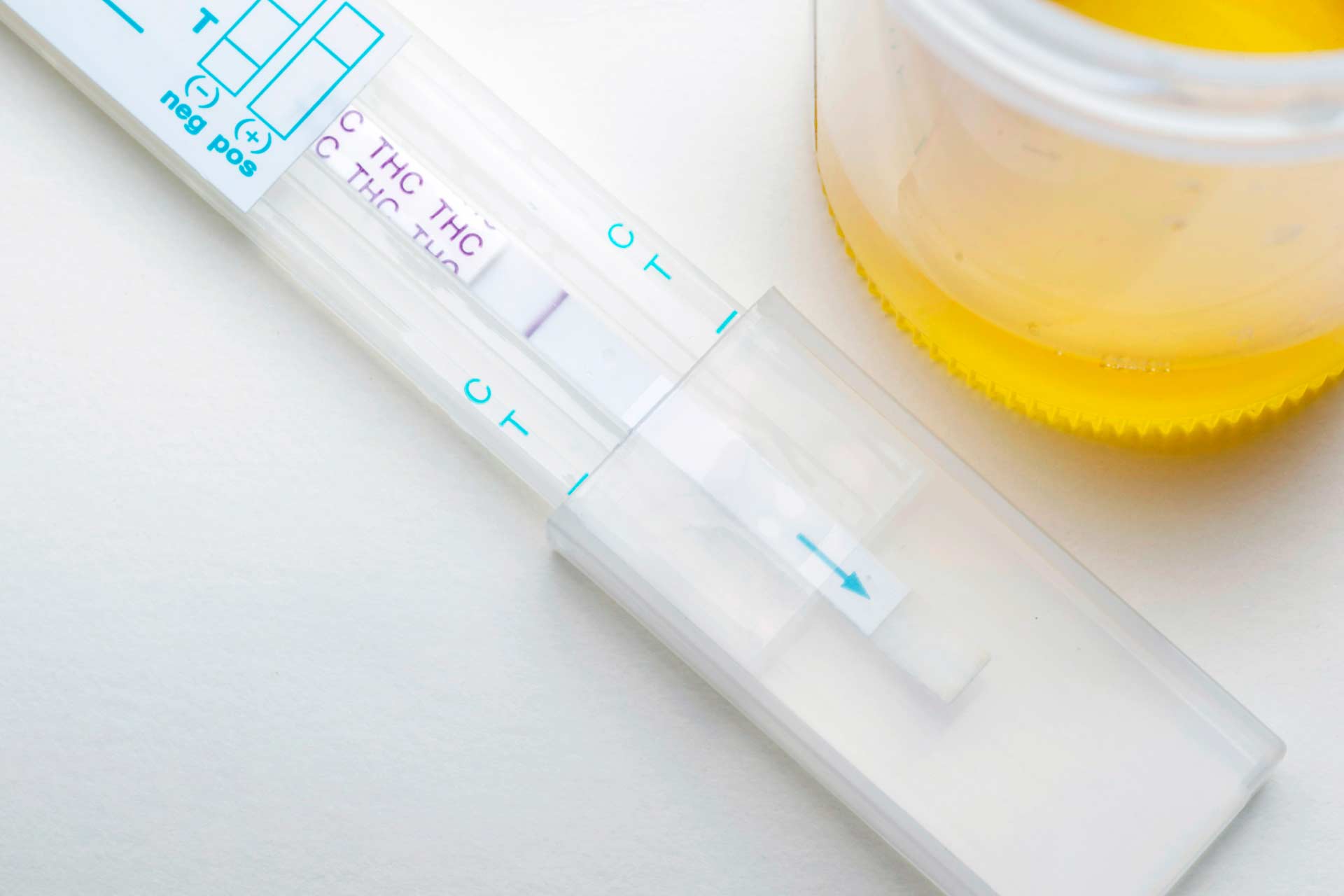
Using Retail Drug Tests as a Tool
Curious whether your cannabis use will register on an employer-mandated drug test? Test yourself and see! Over-the-counter urine drug tests are widely available for home use. They also give you the chance to find your optimal length of time to abstain from cannabis, if you’re anticipating pre-employment drug screening or annual tests in the near future.
Some companies like UTest even offer marijuana drug tests at different sensitivity levels, including 15 ng/mL, 20 ng/mL, and the standard 50 ng/mL, so that you can prepare based on what you know about your workplace’s testing policies.

Other Steps to Prepare for a Drug Test
You’ll find all kinds of advice online about how to pass a workplace drug test. Much of it is based on anecdotal evidence or is merely an urban legend.
However, we do suggest safely increasing your fluid intake prior to a test to help flush out metabolites more quickly. Also, if possible, schedule your drug test later in the day, when drug metabolites will be less concentrated in urine.
Our Leaf Nurses Are Ready to Help
Our fully-licensed registered nurses answer all sorts of cannabis and CBD hemp questions on the hotline. Whether you’re concerned about workplace drug tests or simply curious about trying cannabis for pain, insomnia or other health concerns, we’re here to help at no cost to you! Call us at 844-LEAF411 (844-532-3411) or chat us from the Leaf411.org homepage during hotline hours.
